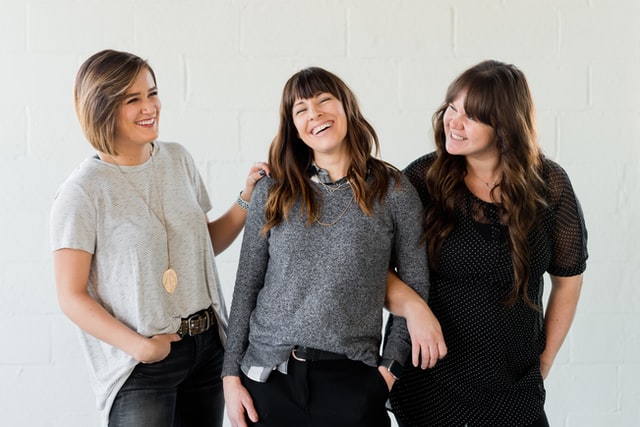My 24 year old daughter hauled me up last week, telling me that my previous article “Women and Money” seemed to focus on women either in relationships or coming out of relationships and wasn’t really relevant to her. She was right. In my practice I was usually seeing situations where things had gone badly, usually because of a relationship breakup, and I was brought in to help pick up the pieces or set things up so that the pieces didn’t fall apart.
So today my thoughts are for people who define themselves as independent, whether they’re single or in a relationship. And some of those thoughts are the same as for those mentioned previously. These are some essentials:
• Make sure you have qualifications and a career that you can fall back on if you decide to do something else in between. Matt worked as a quantity surveyor for a number of years before he decided he wanted more control over his life so spent several years sailing round the world before he came back to NZ and was able to work again as a quantity surveyor. Although he started back at a lower level job he was quickly promoted. When applying for jobs he emphasized the skills he had obtained from his sailing that he felt added to his experience in QS.
• Spend less than you earn. The only borrowing you should consider is a bank loan to buy a property. If you want to buy a car then save up for it, or maybe add it to your mortgage if it’s essential. If you don’t earn enough for the lifestyle you want or feel you should be having then get a different job that pays more. You might have to get some more experience or qualifications so start thinking about these things now. You may also need to change your job regularly so that you are moving each time up the ranks and expanding your experiences along the way. Never under-sell yourself in a job interview.
• Contribute to KiwiSaver either at 3% if you want to explore other investment options to retire earlier than 65, or 10% if you are getting closer to retirement, want to buy a house, or want to rely on KiwiSaver solely for your retirement and want to just forget about it.
• Buy your own home. This not only provides a roof over your head but can be the basis for future investing activity, for example, the security for buying a rental property. It is harder on your own but still possible. Put 10% into KiwiSaver, save as much as you can for a deposit, think laterally about where and what you might buy (eg first home in the outer suburbs, small apartment on leasehold land, a doer-upper, a two bedroom flat and rent one room out) or consider buying with someone else. If you don’t know anyone then ask among your own friends or work colleagues. It doesn’t need to be forever. If you buy with someone else make sure you have a written agreement about deciding the priorities for maintenance and what to do if someone wants to sell their share. If the mortgage is going to cost you significantly more than the rent you’re currently paying and you’re happy where you are then consider renting the property out or getting in flatmates. Remember though that you may not be able to get your KiwiSaver out or get any Government assistance if you are buying an investment property.
Kyle and Tom were best mates from kindy and in their mid-twenties were each keen to buy a house. They couldn’t afford to buy anything much individually so in the end they decided to go in together and bought a four bedroom house in an outer suburb. Although Kyle had a higher deposit they bought half the house each with Tom having a slightly higher mortgage. They got in flatmates for the other two rooms. They set up a long term maintenance plan, a separate bank account for the rent and joint outgoings (rates, insurance and maintenance), paid their own share of their mortgages, and made an agreement re division if one wanted out. They had a few niggles when Tom couldn’t afford to spend as much on maintenance as he had a higher mortgage to service but they resolved this by re-jigging the maintenance plan and Tom agreeing to put in more of his own labour to get some of the work done.
Five years later Tom and his partner decided to buy their own place together. As previously agreed Kyle and Tom got in an independent valuer and they were both happy with the valuation. The property had increased considerably in the time they’d owned it, partly due to renovation and improvement work they’d done but also because of general property value increases in the area and inflation. Kyle decided that he would rather buy Tom’s share than sell the property and he’s still there 5 years later. While they remain good friends, Kyle is happier being in control of the property but is pleased that they bought when they did as he couldn’t have afforded to buy in that area now. Tom is also happy as he ended up with a higher deposit for the property that he and his partner bought than he would have had if he hadn’t bought the first property with Kyle.
• Keep a financial buffer or emergency fund to weather financial storms such as a health crisis or redundancy. The amount should be enough to cover costs for 3 months and rather than having it in cash, it could be in the form of a revolving credit mortgage or investments that you can sell relatively quickly.
• Think about your financial goals. For me this was about having financial independence, that is, always having the earning capacity to earn enough to live off so that if things got really dire (for example, no work) then I could take a lower paid job, lower my spending and living expectations and still be OK. I would be happy to take an unskilled job if required. That’s at the lower level. At the higher level it might be to retire early, reduce to part time work early on to spend more time on hobbies or with friends or family (young and/ or old). It’s worthwhile thinking about these things early on so that you can be heading steadily in the direction you want. It’s much harder to decide at 50 that you want to retire at 55 if you haven’t started setting money aside or to decide at 30 that you want to retire at 35 when you have a large mortgage, single income and a young family. But these things are all doable if you think about them before hand and make some plans early on. Decide what you want, cost it out, then work out how you’ll get there. Most bank websites have calculators for the amount you’ll need in retirement and the amount you have. They’re a great place to start. So does the www.sorted.org.nz website. Don’t get hung up on the numbers being precise as investment returns will vary over time anyway.
• Understand and accept your financial personality and do what allows you to sleep at night. But stretch yourself a little, especially as you start exploring your investing capability and interests. Remember there is no return without risk. Put everything into term deposits at the bank and your KiwiSaver funds into a Conservative, Defensive (Default fund) or Cash Fund and you will make a small return based on interest rates which are at a historic low, or allow yourself to trust in long term returns and invest in a high growth fund if you’re under 40 or a growth or balanced fund if you’re over 50. If you feel comfortable with property then invest in rental property, especially if you are scared of shares and don’t understand them. I can understand that. I’m not an architect or engineer so I will never want to build a house on a steep hill in Wellington for fear of earthquakes and slips but I feel comfortable with shares because I understand them so I’m happy to invest in them. If you want to try shares then you could start with Sharesies by putting in only small amounts regularly spreading it across different shares to reduce your risk or across Exchange Traded Funds (ETFs) which provide a cross -spectrum of shares. Invest more as your understanding and confidence builds. That’s probably the stage that you want to talk to a financial adviser.
• If you do have a partner keep on top of the whole financial situation. Don’t defer to your partner just because they might be an expert in the financial field. Always know where your money is and any mortgages that you have entered into. Be particularly aware of any business loans or guarantees. Prefer to be a shareholder in a family business rather than a director unless you want to be hands on: remember control equals liability. If you’re a director then know everything that’s going on in the business: this is not a passive role. Keep any personal money or inheritances as separate relationship property in case things fall apart.
• Acknowledge that sometimes luck plays a part but, as they say, opportunity comes knocking every day, you just need to see and act upon it. Timing also makes a difference. But the sooner you start the more time you’ll have to make money and recover from any downturns.
• Enjoy being in control of your financial situation.
The information in this blog does not purport to be financial advice and no reliance should be placed on it. It is of a general nature only based on my experience as a Chartered Accountant in practice and specific advice should be sought for your particular situation.

